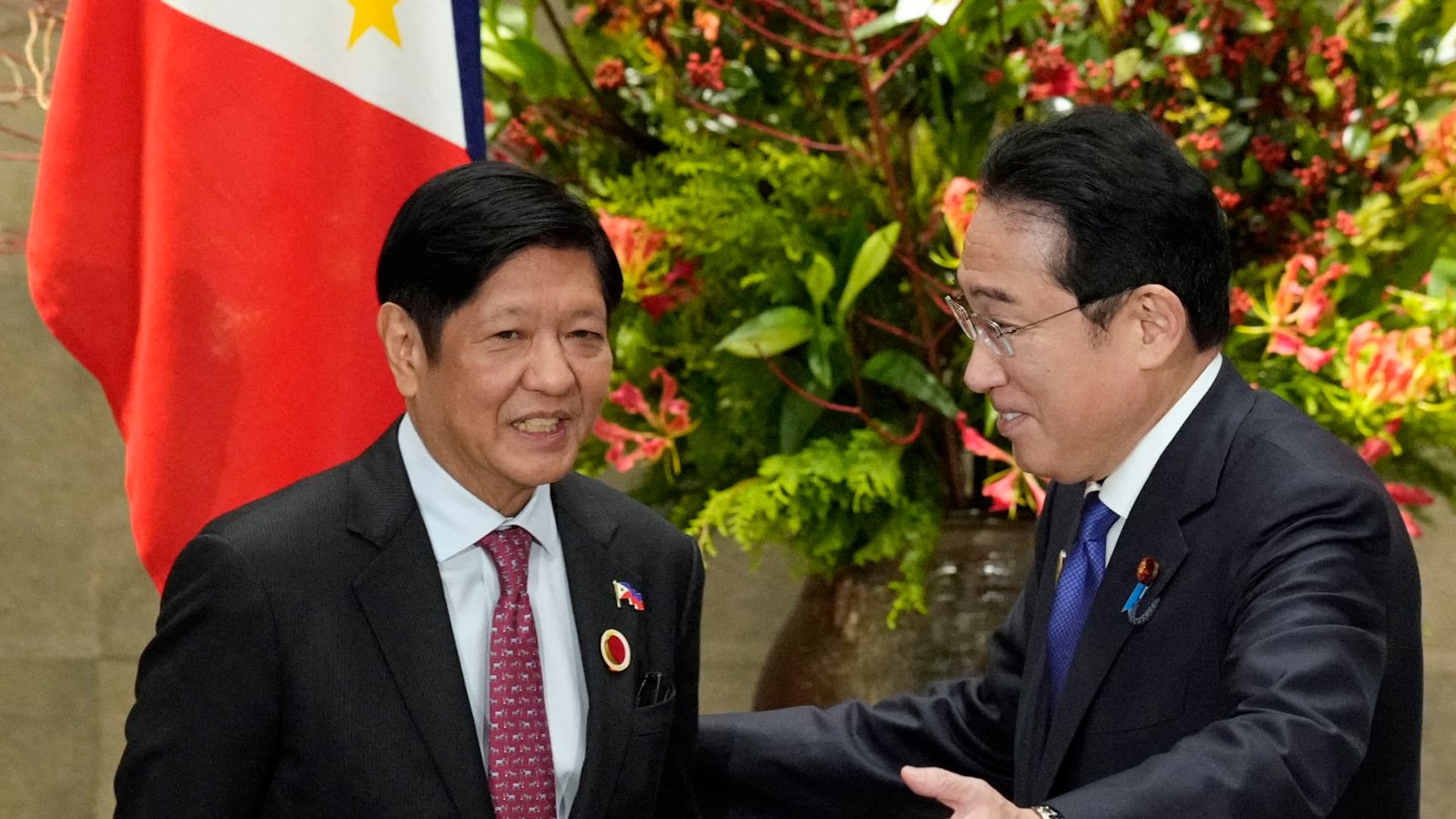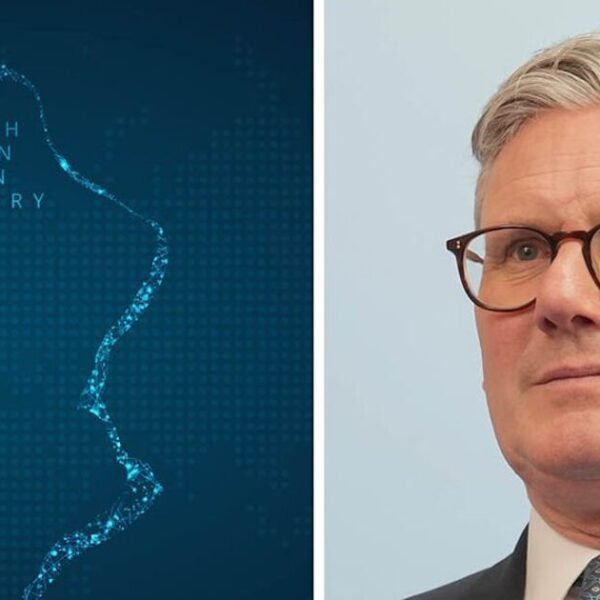Japan’s Prime Minister Fumio Kishida (R) greets Philippines’ President Ferdinand Marcos Jr. during their bilateral meeting, on the sidelines of the ASEAN-Japan Summit, at the prime minister’s official residence in Tokyo on December 17, 2023.
Franck Robichon | Afp | Getty Images
Japan and Philippines’ defense pact signed on Monday seeks to counter China’s increasing aggression in the region and create deterrence that goes beyond reliance on the U.S., experts told CNBC.
The “Reciprocal Access Agreement,” which comes against the backdrop of tensions between the Philippines and China over the Second Thomas Shoal in the South China Sea, allows exchange of armed forces for training and joint military exercises between Tokyo and Manila.
The deal was signed in Manila by Philippine Defence Secretary Gilberto Teodoro and Japanese Foreign Minister Yoko Kamikawa in the presence of President Ferdinand Romualdez Marcos Jr.
The partnership between the Philippines and Japan had been “upgraded one level higher,” Teodoro said at a joint briefing following the RAA ceremony, according to Philippine state media.
“This is another milestone in our shared endeavor to ensure a rules-based international order to ensure peace and stability in the Indo-Pacific and particularly in our region,” he added.
That cooperation includes exchanging defense equipment and technology such as air and coastal surveillance radar and will build upon Japan’s Official Security Assistance initiative, which has provided defense assistance to “like-minded countries” like the Philippines.
“The elephant in the room is China, and this is the point of strategic convergence between the Philippines and Japan,” said Rahman Yaacob, research fellow in the Southeast Asia Program at the Lowy Institute.
The RAA marks Japan’s second such agreement with a country in the Asia-Pacific region, following similar agreements with Australia in 2022. The treaty must be ratified by the appropriate legislative bodies of the Philippines and Japan before coming into force.
Kamikawa called the signing of the RAA “a great achievement” for the two countries to further strengthen security and defense cooperation.
“Both countries have maritime territorial disputes with China, and they are facing increasingly assertive and aggressive Chinese naval forces,” Yaacob added.

Amid tensions with China, both Japan and the Philippines have been increasing cooperation with the U.S. In April, the White House reaffirmed the country’s “ironclad” commitment to defend both the allies in a three-way joint statement.
However, the RAA shows that U.S. allies in the region want to play a more proactive role in regional defense and security rather than just depending on the U.S. for deterrence, said Muhammad Faizal, research fellow at Singapore-based S. Rajaratnam School of International Studies.
“They realize that they cannot depend solely on the U.S.-led regional security architecture to ensure balance of power vis-à-vis China as the U.S. becomes more distracted domestically and by conflicts in other regions,” he said.
China and Japan have had disputes over islands in the East China Sea for many years, with Japanese officials accusing Chinese coast guard vessels of passing through their claimed waters several times this year, according to reports.
Meanwhile, Chinese and Philippine coast guard and navy ships have been involved in a series of escalating clashes in the South China Sea in recent months.
Under President Xi Jinping’s “nine-dash” line declaration, Beijing claims ownership of almost the entire South China Sea, which acts as a vital regional trade passage.
In the latest escalation, Chinese Coast Guards last month seized and damaged two Philippine ships and injured military personnel on a resupply run to an outpost on the disputed Second Thomas Shoal, according to Philippine officials.
Japan and the U.S. were among the first countries to condemn Beijing’s actions. China claimed it was simply defending its sovereignty.



According to experts, the Japanese and Philippine partnership was also likely drawn up with Taiwan — a self-governing Island and U.S. partner that Beijing considers its territory — in mind.
“Both countries are immediate neighbors of Taiwan and deeply worried about the potential Chinese kinetic action and invasion of Taiwan, so they want to also coordinate on that front,” said Richard Heydarian, policy adviser and senior lecturer of international affairs at the University of the Philippines.
“We’re still far away from a full fledged military alliance between the two countries, but the signal to China is very clear. It’s not only the U.S. developing strong ties with regional allies, but allies themselves are looking into doubling down on their security relationships,” he added.
In response to the RAA, a Chinese spokesperson said Monday that exchange and cooperation between countries should not threaten regional peace or target any third parties.
“The Asia-Pacific region does not need any military bloc, [or groupings] that incite bloc confrontation or a new Cold War,” he said, adding that moves that harm regional solidarity would be met with “vigilance and opposition.”

















